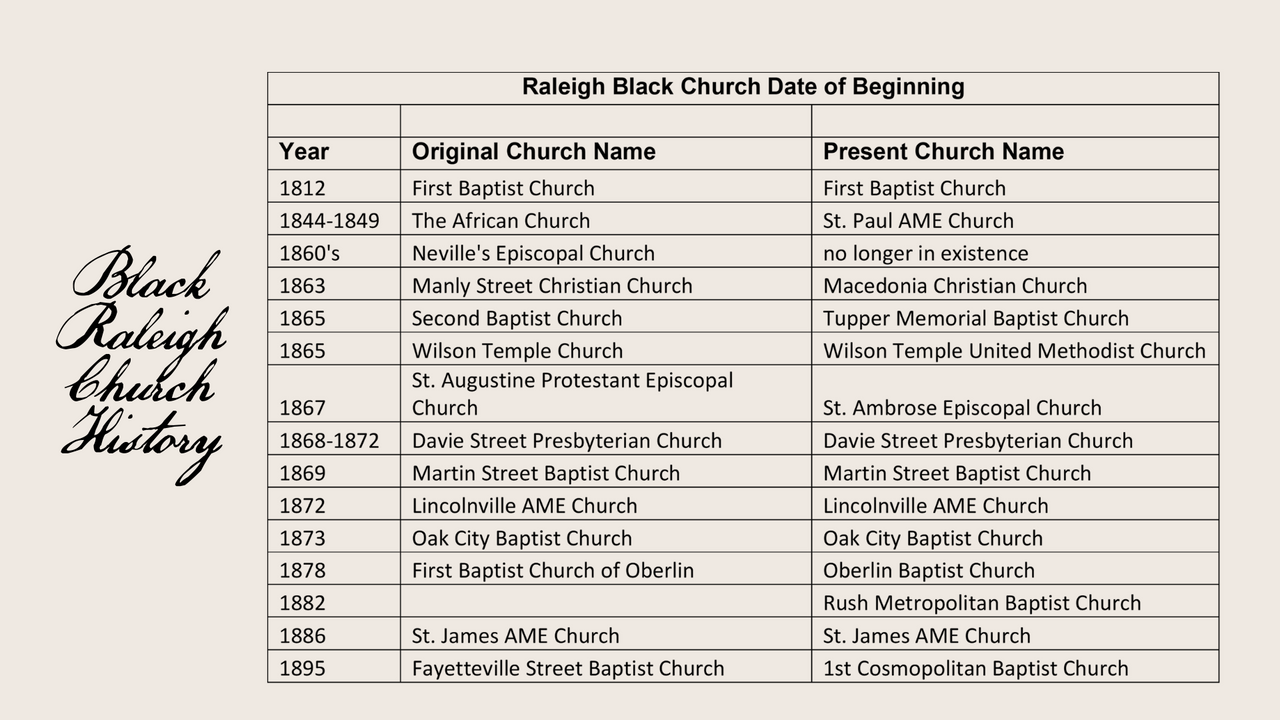Raleigh Black Church History

Raleigh Black Church History…
is fascinating. It would be too long for a blog post, so I am going to tease you with some of the article that I wrote for the Black Oak Society’s Church edition, due to come out in the next couple of weeks.
Raleigh has a formidable history in terms of the Black church.
The roots of the Black church go back into the times of slavery. While some plantation owners didn't want their slaves to know anything about religion, others wanted slaves to hear those passengers requiring slaves to obey their masters to keep fear and obedience hand in hand. Still other slave owners encouraged religious knowledge and brought it to their slaves and their slaves to the church.
In some instances, plantation owners held services on Sunday mornings at home with a traveling preacher or bits of bible reading and prayer. Other owners ventured to church services and allowed slaves to come worship and become members of an organized institution.
Many of Raleigh's oldest and larger churches began before slavery ended and had both Black and White members. In some instances, the slave membership outnumbered the white. At some point after slavery ended, black members asked to start their own congregations and were granted permission to do so. The parent churches sometimes assisted in the process by purchasing, selling land or buildings, or providing ministerial staff.
There were six antebellum churches in the City. By 1871, there were eleven churches, eleven White and four Black. Those Methodist congregations were the only ones to form all Black congregations during the antebellum period.
The entire article talks about each of the churches listed in the chart. It will be available in the upcoming issue of Black Oak Society magazine/ezine. You can purchase or subscribe here: https://www.blackoaksociety.com/bos-zine/. The manuscript for my upcoming book on Raleigh Black Neighborhoods is heading off to the editor this week. Look for it from Arcadia Press by June 2022. All of the history of Southeast Raleigh neighborhoods, as well as Oberlin, Method, Nazareth, and Lincolnville will be included, as will the Raleigh National Historic Register neighborhoods of Rochester Heights, Battery Heights, and Madonna Acres. Feel free to pass along to a friend or neighbor.
P.S. (I didn't know what antebellum meant and had to look it up although I guess I should have known. It means during the time of plantations.)

